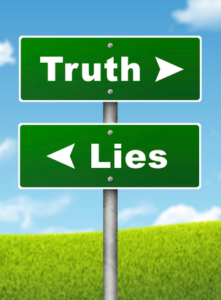The gospel provides hope for us to be set free from any sense of feeling dirty on the inside because of past sins and failures.
Many cultures have a clear understanding of the stark contrast between clean and unclean and between what is holy and what is defiled. In the West, we generally do not major on this, but this does not mean it is unimportant. Most Western theology of salvation (soteriology) is based on a Guilt-Justification paradigm, which is courtroom related and easy for litigation-conscious people to understand. Guilt and condemnation plague many sin-conscious people, driving them toward the gospel’s amazing offer of forgiveness, justification (being declared “not guilty”), and restoration to the family of God. However, in some cultures the guilt problem does not figure as strongly as being “unclean.”
In Western society, perhaps the closest we can come to understanding this is when people simply feel dirty inside because of some past sin they committed or was done to them. Sometimes we may feel tainted by some embarrassing family connection, thinking that we share guilt by association. People who have experienced sexual abuse often struggle with this. It is akin to shame, but a little different. Shame can be related to something specific we have done or failed to do, but feeling dirty on the inside is more pervasive and systemic and less specific. We can present the gospel in a way that can help people become free again.
The Guilt-Justification Paradigm
Simply put, under the guilt-justification paradigm those who commit serious crimes are guilty, condemned, and deserve to be punished. The judge has a responsibility to pronounce judgment on the convicted criminal, who must pay the price for his transgression.
Using the guilt-justification paradigm to present the gospel, we are all criminals who have violated God’s Law, God is the judge, and death is the just sentence for our crimes of rebellion and treachery against God and his rule. (Romans 6:23)
Since all have sinned, mankind’s situation seems hopeless. Old Covenant sacrifices merely delayed the inevitable “lowering of the boom” by a just God. Paul wrote that the Law’s function was to convince us that we are hopeless sinners and to prepare us to receive the glorious good news of forgiveness and justification in the gospel. (Romans 3:22)
Contrary to what anyone would have expected, Jesus, God’s own Son, died in our place, taking upon himself our just condemnation and punishment from God. As a result, we who believe this message and declare allegiance to Christ, are forgiven and declared “not guilty.”
Therefore, having been justified by faith, we have peace with God through our Lord Jesus Christ, Romans 5:1 (NASB)
The gospel offers the only way out of the hopeless situation of being justly condemned for crimes actually committed. This model for presenting the gospel has opened the eyes of countless people, enabling them to come to faith in Christ and escape certain judgment.
The Unclean – Clean Paradigm
But what about those from cultures in which guilt is not nearly so great an issue as being unclean? Here is an insightful quote from “The Gospel for Shame Cultures” by Bruce Thomas.
In observing one particular culture, I have noticed a curious thing. While my Muslim friends and neighbors do not worry much about “little sins” like lying and cheating, their daily lives and religious rituals seem to revolve around something which I would consider to be even less significant, namely their ceremonial purity. The intensity of this insecurity has caused me to consider that defilement might be a basic human problem as serious to some as sin is to others.
Suddenly a lot of things made sense. It had always puzzled me why Muslims make such a big thing out of not eating pork, not getting licked by dogs, and keeping the fast, when sins like lying, cheating, and stealing are treated so superficially. Few Christians seem to comprehend, for instance, the seriousness of eating pork. Dwell for a moment on the revulsion you feel when you think about a Stone Age tribe eating human flesh, and you will begin to understand something of the degree of disgust most Muslims have for the idea of eating pork. It is probably not a sin issue but an issue of ceremonial cleanness. Thus, because eating pork is the worst possible state of defilement, and more attention is given to ceremonial purity than moral purity, the pork eater (George Bush) is worse off than a murderer (Saddam Hussein). (Link)
If we are culturally aware, we understand that “our” way of seeing and doing things is not the only way. The Bible recognizes the significance of ritual or ceremonial uncleanness and also makes a big deal out of it, especially under the Old Covenant.
Jesus brought clarity and insight into our understanding of Old Covenant scriptures. He revealed that God is actually concerned with the condition of the heart, not outward ceremonial cleanness.
The Pharisees, who focused mainly on ceremony and the Law, criticized Jesus and his followers for not maintaining proper ritual cleanness. Here is what Jesus told them.
And he called the people to him again and said to them, “Hear me, all of you, and understand: 15 There is nothing outside a person that by going into him can defile him, but the things that come out of a person are what defile him.” Mark 7:14-15 (ESV)
17 And when he had entered the house and left the people, his disciples asked him about the parable. 18 And he said to them, “Then are you also without understanding? Do you not see that whatever goes into a person from outside cannot defile him, 19 since it enters not his heart but his stomach, and is expelled?” (Thus he declared all foods clean.) 20 And he said, “What comes out of a person is what defiles him. 21 For from within, out of the heart of man, come evil thoughts, sexual immorality, theft, murder, adultery, 22 coveting, wickedness, deceit, sensuality, envy, slander, pride, foolishness. 23 All these evil things come from within, and they defile a person.” Mark 7:17-23 (ESV)
The Old Covenant Law served the purpose of revealing God’s holiness and our sinful state in order to lead us to Christ.
God has always been concerned with the condition of man’s heart. Ceremonial cleanness pointed to actual cleanness which requires a cleansing of the heart. Only God can do this for a person.
Since the LORD your God walks in the midst of your camp to deliver you and to defeat your enemies before you, therefore your camp must be holy; and He must not see anything indecent among you or He will turn away from you. Deuteronomy 23:14 (NASB)
Old Covenant uncleanness was a serious problem. Its effect was to isolate offenders from God’s covenant people and blessings. It usually happened when a ritually clean person touched something unclean. Certain conditions of the body rendered people unclean, too. Leprosy was a particularly serious and incurable disease that rendered a person unclean and resulted in permanent isolation. Imagine the loneliness of a leper, knowing that he or she was cut off from family, friends, and the covenant community. Their situation was hopeless apart from God’s miraculous intervention. Many people today also feel cut off and isolated because of a sense of inward dirtiness and shame.
Importantly, whenever clean people or objects contacted uncleanness, they became unclean. In the Old Covenant, uncleanness was more powerful than cleanness.
In addition, unclean or unholy humans, without some sort of ceremonial purification, had no right to be in God’s direct presence or to touch the holy things of the temple. In many ways, God was off limits to ordinary people. They had to relate to him from a distance through mediators called priests.
Jesus, Communicator of Cleanness
This is where Jesus changed everything. He was (and is) the ultimate Clean Person, God himself. He was not subject to the same ceremonial laws as ordinary humans because he was the fulfillment of everything they represented and toward whom they pointed.
Our Lord was immune to uncleanness. He could touch unclean people and make them clean again, while suffering no adverse effects himself.
Jesus’ ministry demonstrated his amazing power over everything unclean. In Mark’s gospel, the first act of power Jesus did was to drive out an unclean spirit. (Mark 1:25-26) Later in the same chapter, Jesus healed a dreaded unclean leper by touching him and commanding him, “Be clean.” Mark wrote that “immediately the leprosy left him and he was cleansed.” (Mark 1:42) In Chapter 5, a woman who was ritually unclean due to bleeding, dared to touch God’s temple (Jesus), hoping that she would be healed and cleansed as a result. In the Old Covenant, she likely would have been struck dead for presuming to touch God’s Holy of Holies, especially as an unclean person; but, Jesus, the Author of the New Covenant, mercifully allowed her to touch him, which resulted in her being miraculously healed and cleansed.
The unclean touched the clean and was made clean while Jesus suffered no ill effects!
Later in the chapter, our Lord took a dead girl by the hand, which under the Law would have made him unclean, and he raised her from the dead. Once again, the clean triumphed over the unclean. Death was conquered by Life.
Ultimately, Jesus dealt with the real problem of mankind, internal sin induced uncleanness. He did this by dying on the cross, carrying in himself our uncleanness.
He made Him who knew no sin to be sin on our behalf, so that we might become the righteousness of God in Him. 2 Corinthians 5:21 (NASB)
And here we are again back at the Guilt-Justification paradigm. One flows right into the other.
New Covenant Cleanness
Under the Old Covenant, ceremonial cleanness only dealt with the external, never with the real issue – the human heart and our sin problem.
Jesus addressed the Pharisees and other Jewish leaders, who prided themselves on keeping the external features of the Law, while remaining oblivious to the things about which God cared most.
"Woe to you, scribes and Pharisees, hypocrites! For you are like whitewashed tombs which on the outside appear beautiful, but inside they are full of dead men's bones and all uncleanness. 28 "So you, too, outwardly appear righteous to men, but inwardly you are full of hypocrisy and lawlessness. Matthew 23:27-28 (NASB)
We understand from the New Testament that cleansing and forgiveness are two sides of the same coin.
John the Apostle gave us the following insightful promise.
If we confess our sins, He is faithful and righteous to forgive us our sins and to cleanse us from all unrighteousness. 1 John 1:9 (NASB)
This verse ties together justification and cleansing. Jesus’ blood sacrifice as the Lamb of God paid the just consequence for our sins, providing us with forgiveness and a right relationship with God. It also cleansed us from all moral uncleanness that made us a stench to God. This is a one time transaction with God that plays out day to day as we continue to live by faith in his faithfulness. However, since we still sin on a day-to-day basis, we need to be regularly cleansed through the confession of our sins.
Jesus compared this to having our feet washed, another example of cleansing.
Peter *said to Him, “Never shall You wash my feet!” Jesus answered him, “If I do not wash you, you have no part with Me.” 9 Simon Peter *said to Him, “Lord, then wash not only my feet, but also my hands and my head.” 10 Jesus *said to him, “He who has bathed needs only to wash his feet, but is completely clean; and you are clean, but not all of you.” John 13:8-10 (NASB)
When we place our faith in Jesus and his finished work on the cross and his resurrection, we are made clean before God in the most basic and essential sense. We are recreated in God’s image and become his children for all eternity. However, as we go through life, we become dirty on the “outside” and need a less drastic cleansing that is provided when we confess our sins to God and one another.
Summary
Because Christ died for us “outside the camp” (Hebrews 13:13) as a person made unclean by our sin, those who put their faith in him no longer need to be concerned about ritual cleanness.
The ceremonial and sacrificial aspects of the Law were completely fulfilled by Christ and rendered obsolete. The moral requirements of the Law, however, are eternal. The “law of the Spirit of life” works in all children of God to assist us to live out these requirements from the heart through the power of the Spirit.
Therefore there is now no condemnation for those who are in Christ Jesus. 2 For the law of the Spirit of life in Christ Jesus has set you free from the law of sin and of death. 3 For what the Law could not do, weak as it was through the flesh, God did: sending His own Son in the likeness of sinful flesh and as an offering for sin, He condemned sin in the flesh, 4 so that the requirement of the Law might be fulfilled in us, who do not walk according to the flesh but according to the Spirit. Romans 8:1-4 (NASB)
When we share the gospel with people who relate best to a clean-unclean paradigm or who battle with feeling dirty on the inside, we should tell them how Jesus took our uncleanness upon himself so that we are no longer excluded, dirty, shameful, or cursed.
Jesus draws the unclean, the ashamed, and outsiders to himself, touches us, cleanses us, and makes us part of God’s forever family.
Prayer
Jesus, for so long now I have felt unclean, ashamed, and cut off from you, your presence, and all the blessings that could have been mine. Thank you for becoming unclean by taking my sins, shame, and guilt upon yourself so that I can be cleansed from everything that has blocked me from God. I confess my sin to you and thank you for forgiving and cleansing me in the inside. Help me to live for you from this day forward. Amen.
as it is written, “Behold, I am laying in Zion a stone of stumbling, and a rock of offense; and whoever believes in him will not be put to shame.” Romans 9:33 (ESV)
Click here to see more articles about the gospel.





